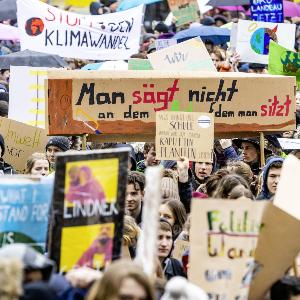
© IMAGO / Arnulf Hettrich
Lecture series on "How Education Can Mitigate Climate Change"
In 2030 our world will be a different one. Scientists forecast that this present decade will witness a more pronounced change in the climate than any we have yet seen. Episodes of extreme weather of all kinds will become more common, the rate of biodiversity loss will increase, water resources will decline, harvests will become less secure and an increase in migration flows will inevitably follow. How humans react to global warming in the coming decade will decide whether or not our planet's climate can be returned to a stable state.
Education will have a major role to play in promoting the transformation of society that is required to tackle the issue effectively, giving future generations a fair chance to make the necessary adjustments in their turn. An online series of interdisciplinary lectures given by researchers at LMU and other experts in relevant fields will focus on possible ways of successfully responding to the challenge.
How are carbon emissions quantified? Where do they end up (in natural sinks in terrestrial ecosystems and in the oceans)? Which countries have emitted how much, who is responsible and needs to clean up? What form does the trajectory of emissions take from the early Holocene Era through recorded history? Does the coronavirus crisis mean that the peak has been reached and that emission rates will steadily fall from now on? How can we attain the 2-degree target? What difference can negative-emission technologies make, especially in agriculture? Can measures such as re-afforestation, biomass plantations and accelerated erosion provide a panacea, or do they too have downsides?
Professor Julia Pongratz is a German climate researcher and holder of the Chair of Geography and Land-Use Systems at LMU. She also has a research post at the Max Planck Institute for Meteorology and a contributor to the reports issued by the IPCC. Among her research interests are the study of the global carbon cycle and the interactions between humans,vegetation and climate, as well as the imact of changes in land use and the climate.
For full details of this lecture series, together with information on how to register for the program, see the corresponding webpage. The lecture will be held in German.
